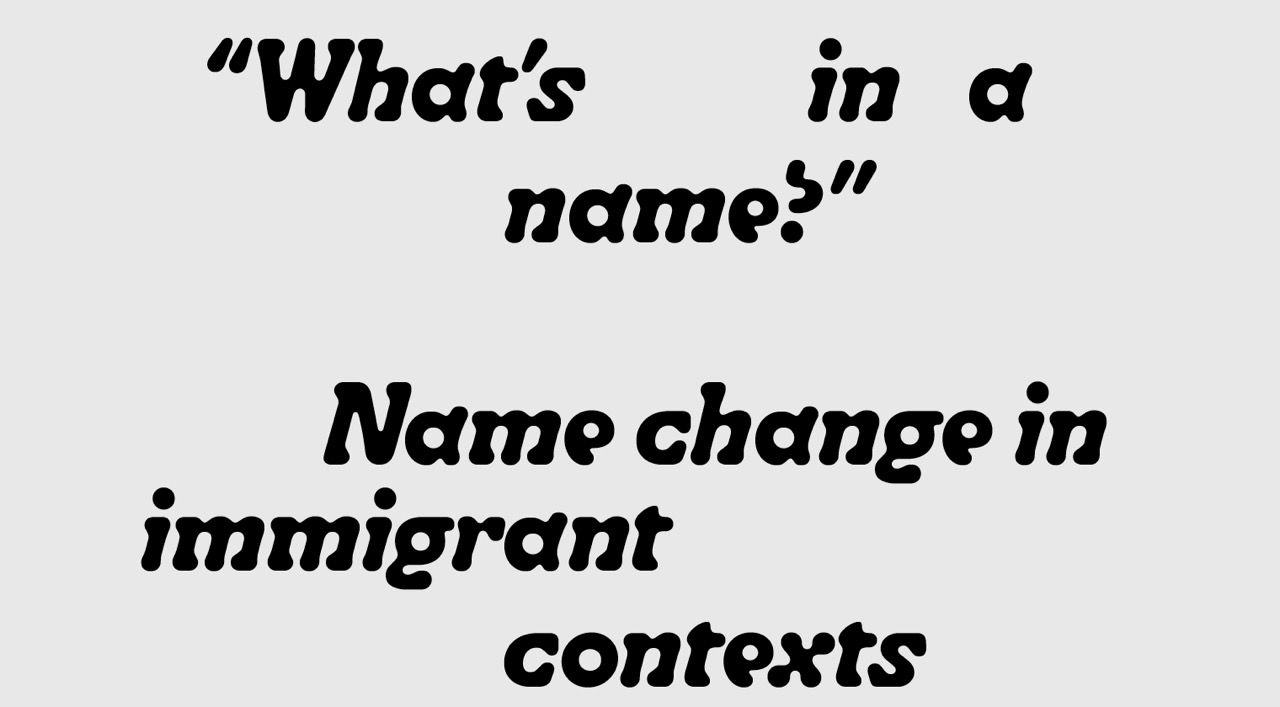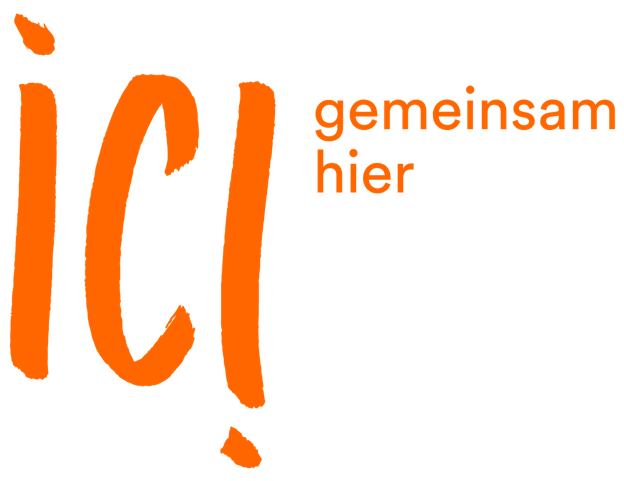What's in a name?
Name change in immigrant contexts

In this article, I want to share my family’s history with name changing in France where I was born after my parents left Kosovo in the 90s. Although there are many studies about xenophobia in France, not a lot focus on names and how immigrants can face stigmatisation based on them. In La Sociologie des prénoms (2011), Coulmont states that about 3000 people change their first name every year, 3/4 of them being of foreign origin (I could not find similar statistics about last names). In France, names are more than ever “cultural markers” (Fourquet & Manternach, 2019). We can definitely see that in the speeches of far right personalities who have instrumentalised names to propagate racist and xenophobic ideas. A memorable case was when Eric Zemmour, a very notorious far right personality known for his hateful and ignorant speech, attacked the journalist Hapsatou Sy because of her name on the set of the programme “Les terriens du dimanche” in 2018. After suggesting she should have the (very French sounding) name Corinne, he said: “Your name is an insult to France […] Names represent and embody the history of the country therefore your name is not part of the country’s history whether you like it or not.” To which she replied “You have just insulted me because my name is part of my identity.” In march 2024, he was condemned by the Paris Court of Appeal for “racist abuse” (not for the first time). This is just a striking example of what people of foreign origin can face and this one happened for everyone to see on television. In the everyday lives of minorities, these attacks can take many shapes and forms. Sometimes they are frontal and directly violent like the example we have just seen but they can also be indirect which makes them hard to detect and hard to denounce in court for example. An employer can choose not to give you the job, a landlord can choose not to give you the apartment, you can be laughed at at work, at school, and so on and so forth. No wonder some decide to choose another name, like my parents did. Until recently I never really thought to ask them what made them decide to do that. It was only in 2024 when I moved to Kosovo and made more Albanian friends that I started feeling uncomfortable about the last name on my ID: CATOT. I felt upset and maybe ashamed that I did not have an Albanian last name when both my parents are Albanian from Mitrovicë. I felt like part of my cultural identity was being erased by having a French last name. So I decided to investigate, and by investigate I mean have a very long conversation with my mum on the beach in Albania and record it (talk about ethnographic work huh?). Here’s what she told me. After they arrived in France, my parents got married and both had my father’s last name, Cakiqi. Neither of them thought of changing it but they soon got tired of peoples’ comments. One thing about French people is that they will never try to get the pronunciation of anything that is not French right. So Cakiqi, in everyone’s mouths became “Kakiki”. Their name was butchered all the time and there is very little they could do about it except for correcting the people who would immediately forget and go back to mispronouncing it. Therefore, during the long and fastidious process to get citizenship, when they were asked if they wanted to change their name they considered it. After all, their first child (me) had just been born and the mockery would be something I would have to face too. So they did it. They kept the first two letters “CA” and my mum thought of CATO which kept an Albanian sonority but could at least be pronounceable by French people. They were forced to add a silent “t” at the end so that the name would sound and also look French (God forbid a French word/ name doesn’t end with a silent letter to make it confusing for everyone, am I right?). She also told me the story of a friend of hers that changed her last name as well as her first name when she got French citizenship. From Hyrije, she became Irène. Not only would French people lose their mind because of how unpronounceable it was (really all you need to do is ask and remember — I mean, is it really that hard…?) but they would of course make fun of it. Her case is quite interesting because Hyrije/ Irène had a job which implied wearing a name tag on her all the time. To go back to Shakespeare and his reflection on the abstract and immaterial nature of names, Hyrije’s case represents a contradiction where her name was not just an abstraction but a continuation of her body in the form of a name tag. Her name was quite literally and physically on her. For her and for my parents, changing their names was a way to protect themselves and their family from mockery and xenophobia. Obviously they were also very aware of other forms of discrimination immigrants could face because of their name as it is the case for many other diasporas. Statistics about North African immigrants in France are quite telling. According to the Institut des Politiques Publiques, when applying for a job, a person whose name suggests they are from a North African or Arab country have 31,5% less chances to be hired compared to people with a French name.
I feel I am still coming to terms with accepting my “french” last name. Maybe I never will. However I don’t hate it. I hate that any immigrant even has to consider changing such a big part of their identity in the name of integration, or rather assimilation. I also hate the fact that other people from the diaspora might judge this choice and consider that changing one’s name equals forgetting one’s roots. It is not something to be ashamed of and I am very proud of my parents for making a decision that would make their life and their children’s life easier. Changing one’s name is a massive step immigrants take to create a better life for themselves. Although it is the result of societal pressure in a given socio-political context, it is also a display of agency. My parents had to make a choice which they never planned to make. But this last name is a testimony of a struggle, a transition and a powerful choice that many other immigrants make everyday. While my ID reads Leonita Catot, I also chose to reclaim the name Galica as it was the name of my ancestors on my mother’s side. I cherish both names, both imbued with the history and the struggles of the generations before me. Names are constantly erased not only in immigrant contexts but in many other scenarios such as marriage. In many countries, women have to let go of their last name and take their husbands’ which will then be passed on to the children. While it is slowly changing, this patriarchal traditional has erased women’s histories for centuries. A telling example of that is the question “E kujna je?” (Whose (child) are you?) in Albanian to which people are expected to answer with their father’s name. Choosing to take the name Galica is not just about reconnecting with my Albanian roots, it is also a way for me to reclaim my familial heritage on my mother’s side.
Names are impalpable and yet they are saturated with meaning. You know so much from a person’s name: where they come from, what they have gone through,… For that reason, names are constantly policed and politicised. They reflect a person’s identity as well as the inequalities present in society. They are a testimony to individual and collective struggles. So, to answer your question Juliet: What’s in a name? Everything.


